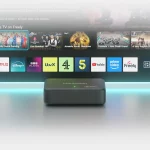Liberty Global’s (Virgin Media) Broadband Delivers £1.4bn Boost to UK
Cable operator Liberty Global, which owns Virgin Media, has claimed that the “economic effects” of their investments in the UK (i.e. higher broadband speeds, improved productivity and price competition) between 2013 and 2017 have delivered a “total social benefit” worth £1.38bn.
The analysis flows from a new Oxera Consulting report, which has been studying the economic impact of Liberty Global’s investment in new broadband infrastructure. Overall the operator claims to have invested £11.6bn (total capital expenditure – adjusted for inflation) across all of its European operations in new and existing infrastructure, customer premises equipment, business support and other key services.
Mike Fries, Liberty Global CEO, said:
“Our significant investment clearly has a positive impact for consumers and businesses across Europe, and we are proud that it simultaneously generates billions for the economy, while creating clear social benefits through improved speed, productivity and competition.”
One of those key investments has of course been the operator’s £3bn Project Lightning network expansion, which aims to cover a total of 17 million UK premises by 2019 (i.e. 4 million extra [2 million via FTTP]) – boosting their coverage of the United Kingdom to around 60-65%. Mind you there have recently been a few stumbling blocks with the roll-out progress (here), albeit not enough to upset Oxera’s study.
Advertisement
Otherwise the report estimates that the economic benefits to society across Europe total more than €7 billion since the start of 2013, including €5 billion in speed benefits to customers through access to a greater range and quality of internet services, plus €1.5 billion in productivity benefits through increased output of small businesses and home workers due to better connectivity, and finally €536 million in price benefits and competition.
Liberty Global claims that their investments often introduce network competition to an area for the first time, which is certainly true for a lot of UK homes where otherwise Openreach [BT] might be the sole supplier. However Openreach’s network is open access and Local Loop Unbundling (LLU) does somewhat complicate this argument. Suffice to say that gauging the economic benefit of faster broadband remains a ferociously difficult task and such figures are often open to interpretation.
Aside from Project Lighting we also expect Liberty Global to begin the roll-out of Gigabit capable DOCSIS 3.1 technology towards the end of 2017 (here) and a lot of the necessary infrastructure is already being installed in order to support that.

Advertisement
Mark is a professional technology writer, IT consultant and computer engineer from Dorset (England), he also founded ISPreview in 1999 and enjoys analysing the latest telecoms and broadband developments. Find me on X (Twitter), Mastodon, Facebook, BlueSky, Threads.net and Linkedin.
« SNP 2017 Manifesto Reiterates Superfast Broadband for All by 2021 Pledge
















































Comments are closed